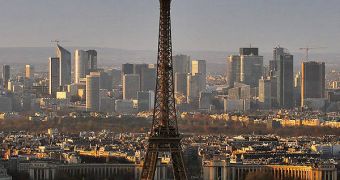With the December UN summit in Copenhagen less than 200 days away, leaders of the world are struggling to find ways to get along on an issue related to fighting global warming and climate change. Everyone admits that the future agreement, which is slated to replace the Kyoto Protocol, signed in Japan in 1997, will take a lot of effort on the part of all actors involved. In order to facilitate things, Germany and France have recently proposed that the developed world engage in pledges to cut deep on their emission levels, while leaving polluting giants such as China and the United States more leeway on catching up with the rest of the world.
While this may seem biased and unfair at first, officials from the two European nations say that the move would be the only one able to guarantee that these countries, together with other major polluters such as Australia and India, are included in the treaty, and that they do not break off on this issue from the rest of the world.
Speaking at a news conference on the first of a two-day meeting on climate change, the French Environment Minister Jean-Louis Borloo told reporters that, “There can be more flexibility among [nations].” The Paris meeting was called by President Barack Obama, who took the US out of the reluctant stance the Bush administration set it on, and had actively involved the nation in finding a solution before the December meeting.
A panel of UN experts have argued that emission levels have to be cut down by 25 to 40 percent from 1990 levels by 2020, if the world is to avoid the worst-case global warming scenario. The French Minister explained that the western world could collectively sign up for this objective, while at the same time allowing some countries to perform the reforms at their own pace. “There may be some who act faster and others who do more later,” the official told, quoted by Reuters.
At this point, from the groups of nations actively involved in fighting climate change, the European Union has the most ambitious goals, of reducing emissions by 20 to 30 percent from 1990 levels by 2020, while the US has pledged only to bring pollution down to 1990 levels in the same time frame. “I don't think it's correct to say that Europe is proposing a lot and the United States little. If you look at things from the point of view of the progress that each nation will have to make to reach its objectives, the U.S. level of effort is probably equal, or superior, to that of Europe,” the US Special Envoy for Climate Change, Todd Stern, explained the situation for the French daily Le Monde.

 14 DAY TRIAL //
14 DAY TRIAL //